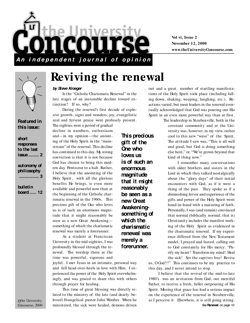How we should imitate St. Thomas in our philosophizing
by Scott Johnston
I very much appreciated Dr. Lee’s Volume V, issue 8 article about St. Thomas’ view of love. Related to his point, there are those who seem perhaps overly eager to accept an opinion about St. Thomas that would have him being overly stoic in his affections. This would clearly be a mischaracterization. One only need read the Angelic Doctor’s beautiful prayers with their many heartfelt and very deep expressions of love and tender devotion to dispel any thoughts that he had a wintery heart.
Still, I think Mr. Kellmeyer’s article corroborating Dr. Lee’s concern was off base. Kellmeyer seems to fall into the all too common assumption that St. Thomas’ philosophy and theology is the philosophy and theology of the Church. The Church simply is not that tunnel-visioned. St. Thomas himself I think would be appalled at the thought of someone implying that everything must be seen preferentially through his mental glasses alone.
The Angelic Doctor certainly is upheld as a marvelous example of faithful scholarship well done, whom many would do well to imitate. And he achieved a coherent vision amazing in its breadth. But as Dr. White points out (I took a course in Medieval Philosophy with him last semester), the Church does not advocate that everyone be a Thomist. Rather, the Church encourages the study of his work because of its high quality, to help discipline the mind in the rigors of careful logical thinking and so that he might be emulated as to his approach.
St. Thomas himself was influenced by a number of different great thinkers who had something valuable to contribute to man’s understanding of the truth of things. For Thomas, truth was the standard he served. No particular man’s doctrine was the absolute arbiter of the truth of things. So to truly do theology and philosophy “according to the mind of St. Thomas,” means to do as he did: to take from all the greats of the tradition, so that in their rubbing together they might add perceptive power and expansiveness to one’s own intellectual vision. (For example Thomas took Aristotle and brought his thought into the West using Revelation as the ultimate guide by which to interpret his work, not vice versa. Augustine and Boethius were brought to bear quite frequently in the process. The intellectual crisis initially brought about by the appearance of Aristotle’s works was in part due to an odd artificial dividing line that was maintained between Aristotelian philosophy and revelation.)
Most, if not all, of the great minds of the Catholic tradition have allowed themselves to be shaped and challenged from several different directions. This provides a powerful stimulus for creativity and movement forward into new and deeper insights. Indeed the dialectical process used by the scholastics involved being so thoroughly familiar with the perspectives of multiple authorities on a given subject that one could competently speak through the mind set of these authorities about a particular issue, showing how they agreed and how they differed, and then offer one’s own conclusion, building upon the greater depth surrounding the matter one had achieved by circumscribing it from different angles.
As Dr. White points out, it is a temptation for lesser minds to simply latch on to the system of one great thinker and try and make his approach answer everything. As great as St. Thomas is, to do this would be a mistake that actually stifles intellectual creativity and genuine progress. The method of St. Thomas himself—to be open to new insight from any direction and to be willing to put forth the effort required to judge things always in the light not of any one person, but in light of Revelation (for before anything, Thomas saw himself as a servant of the gospel)—requires great humility and a desire to work very hard intellectually from a position of submission to ultimate truth. This humility must always include the frank understanding that no system of thought, no matter how excellent, is capable of accurately encompassing all that can be known about God and the world. This I believe is a properly Catholic attitude.
Scott Johnston, Senior biology and philosophy major


